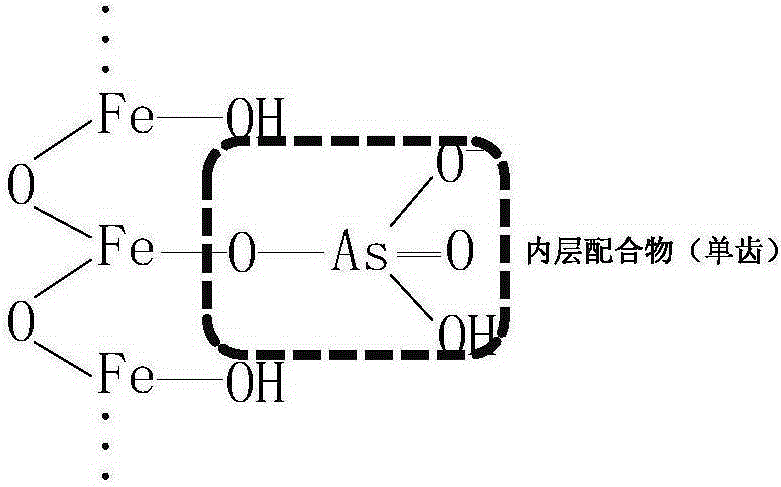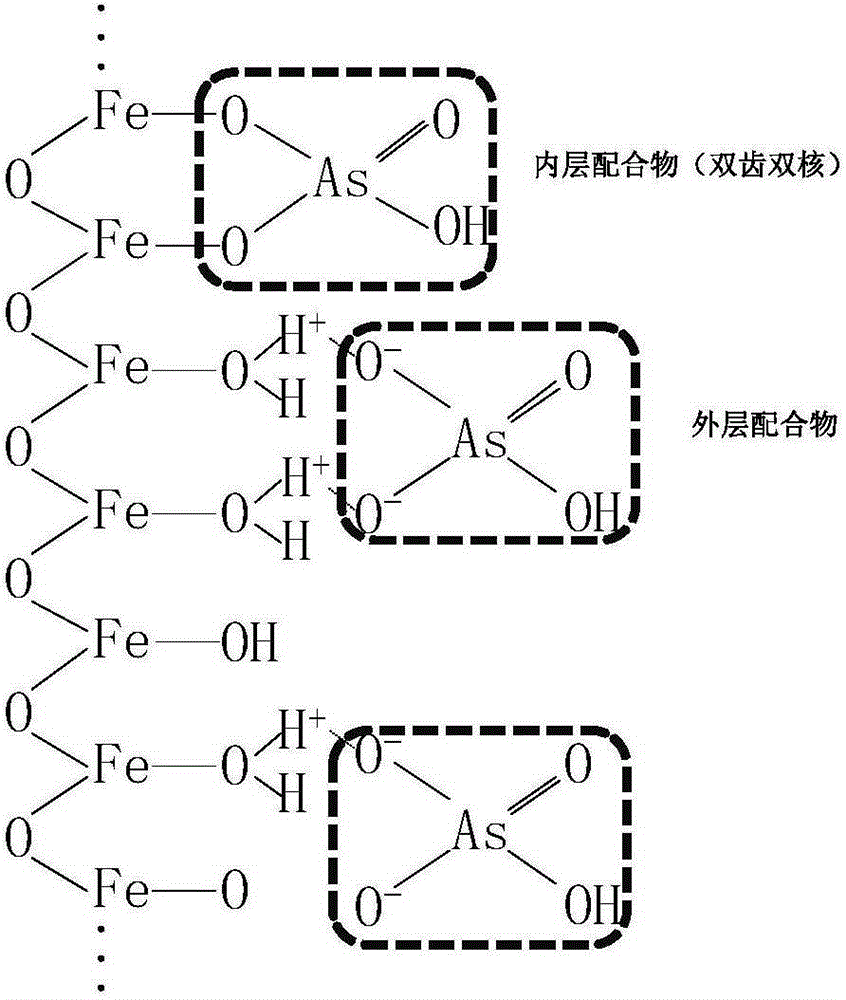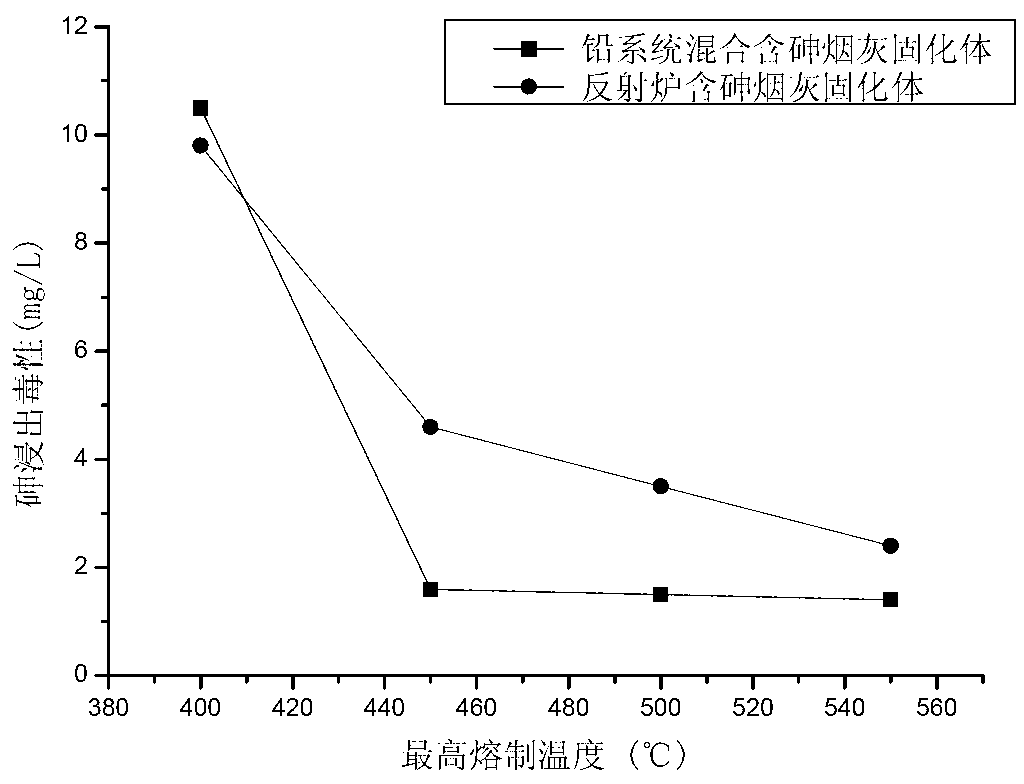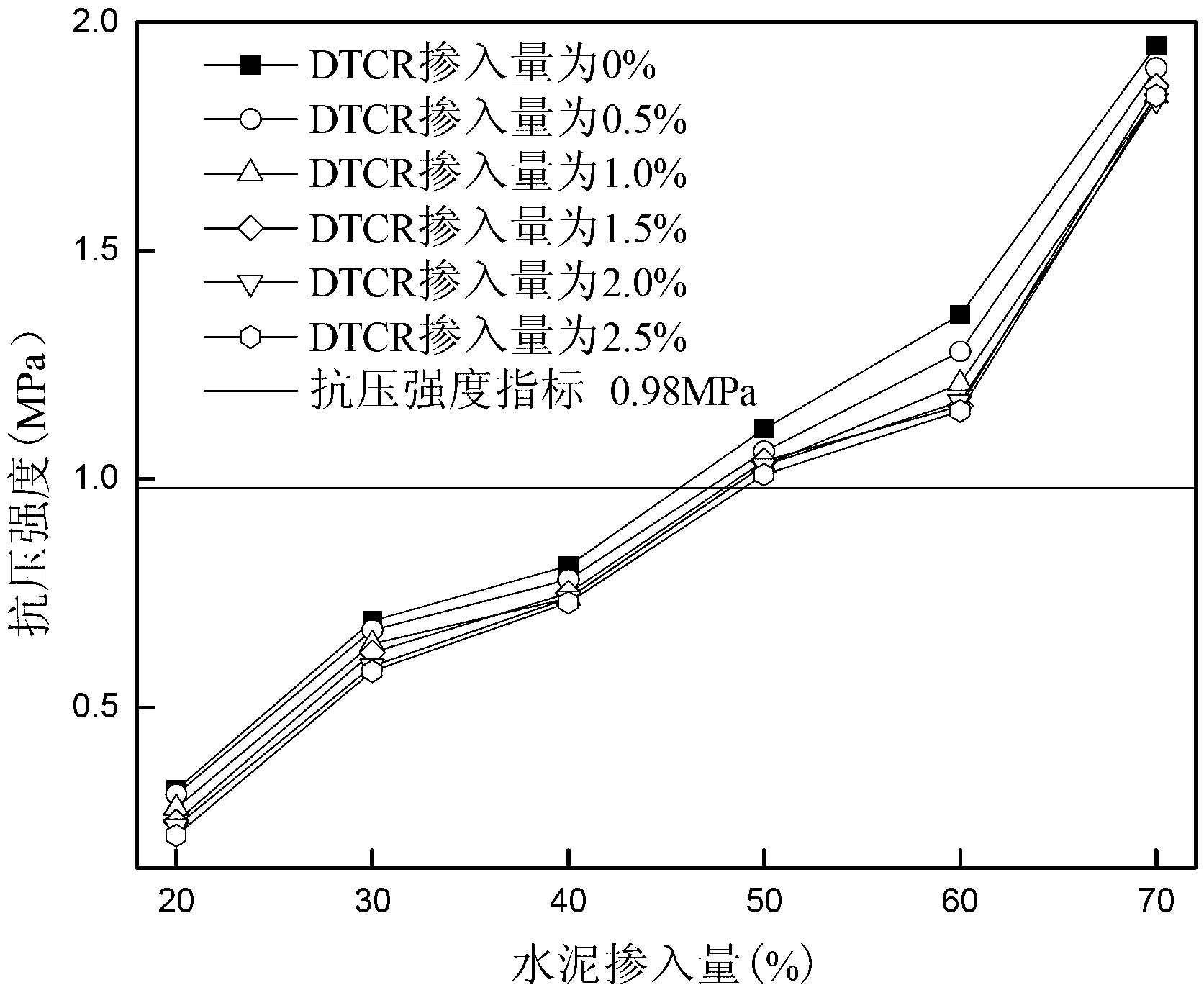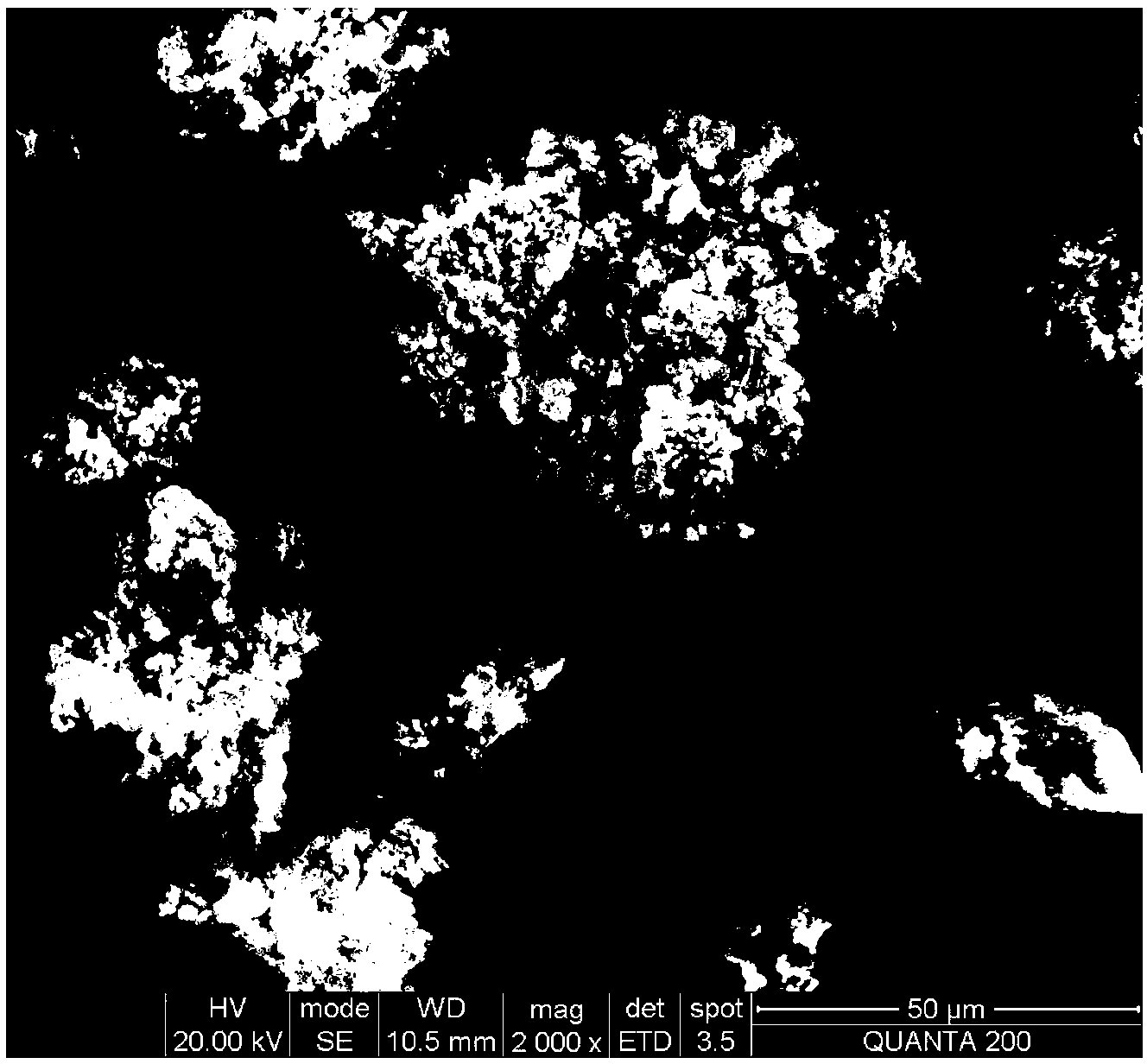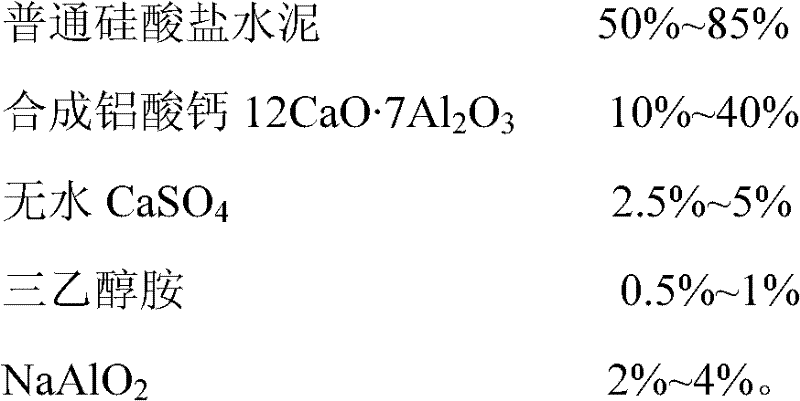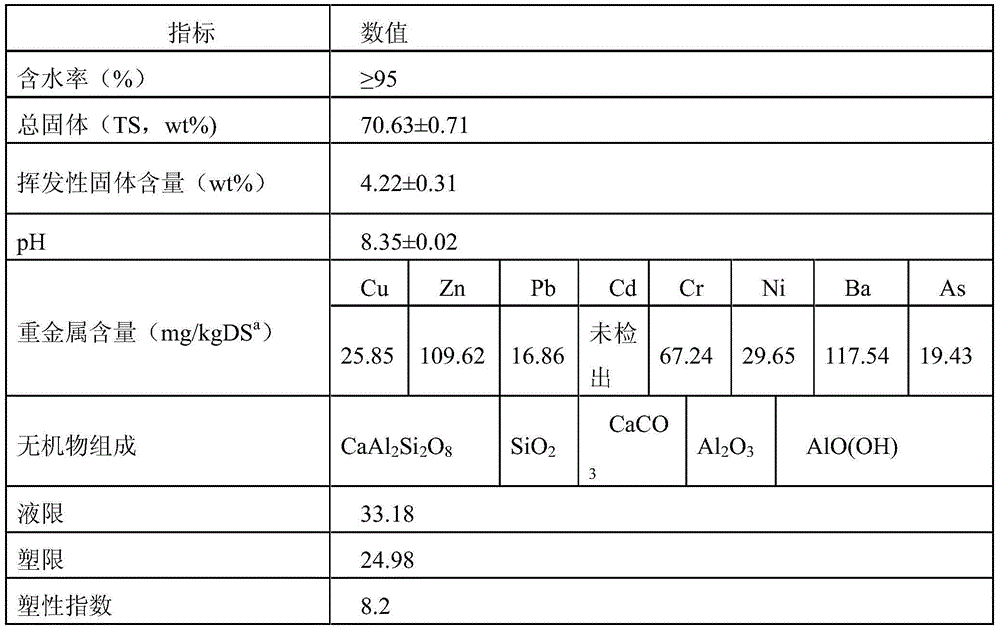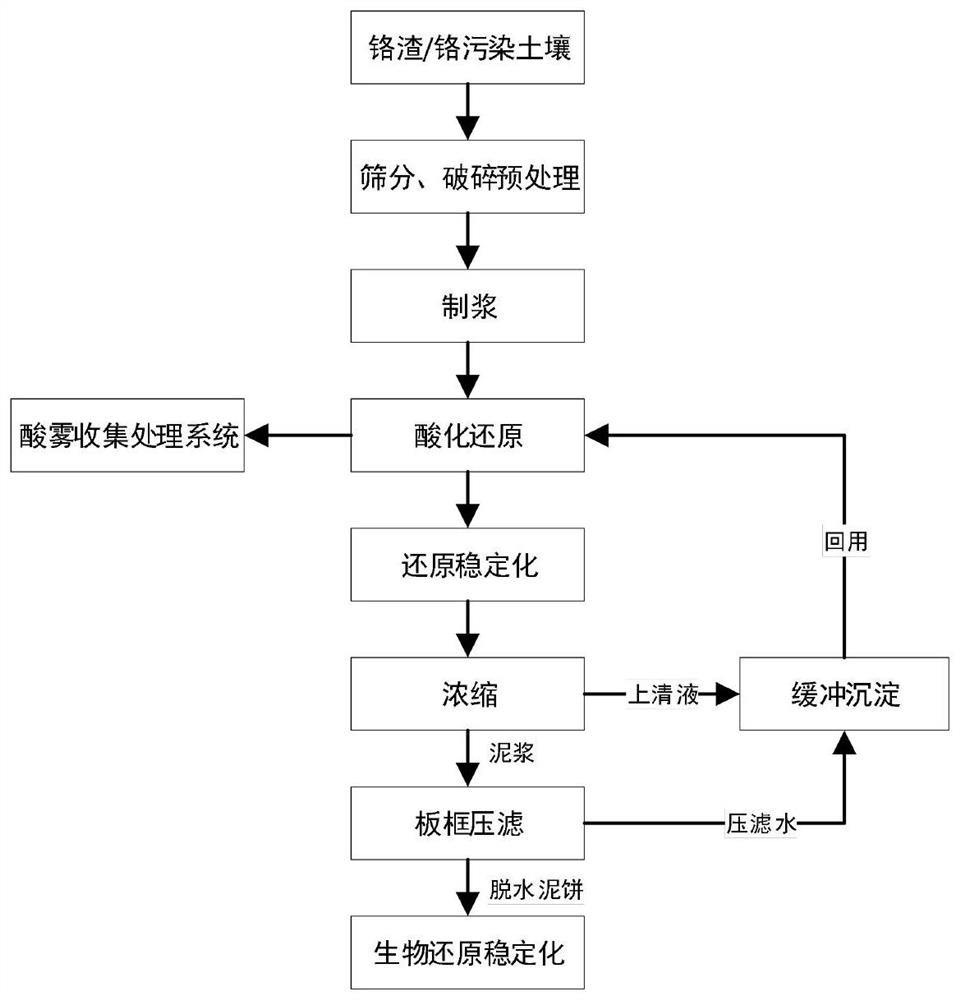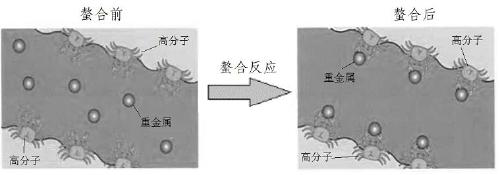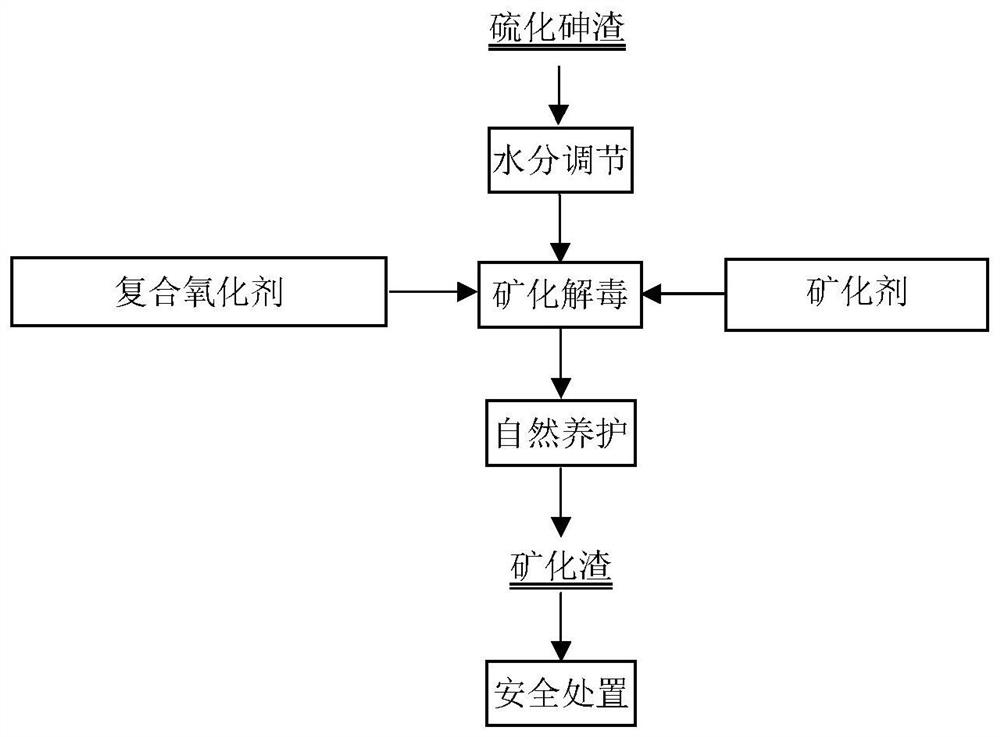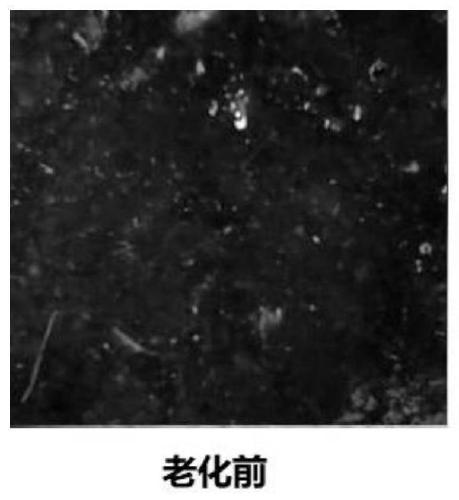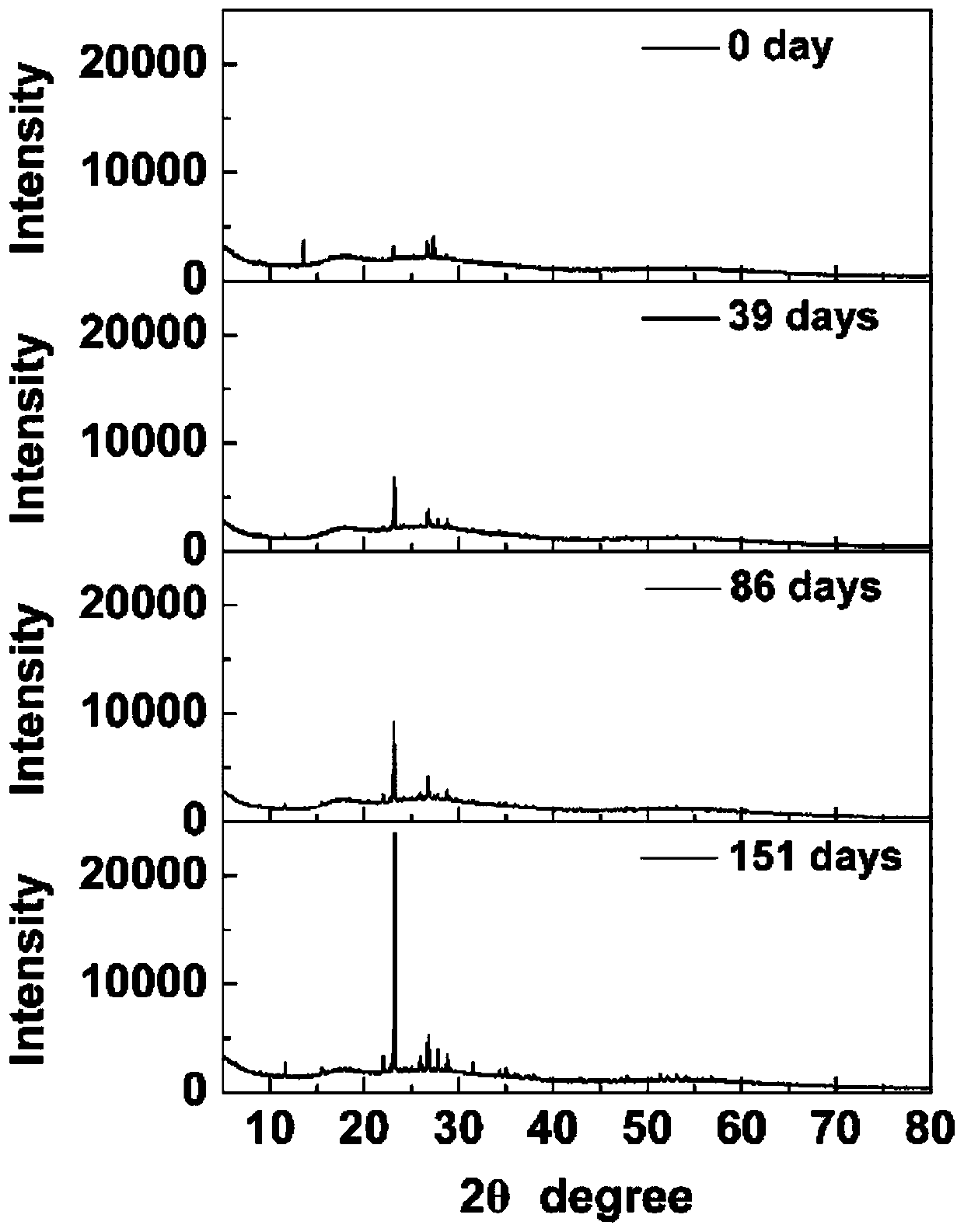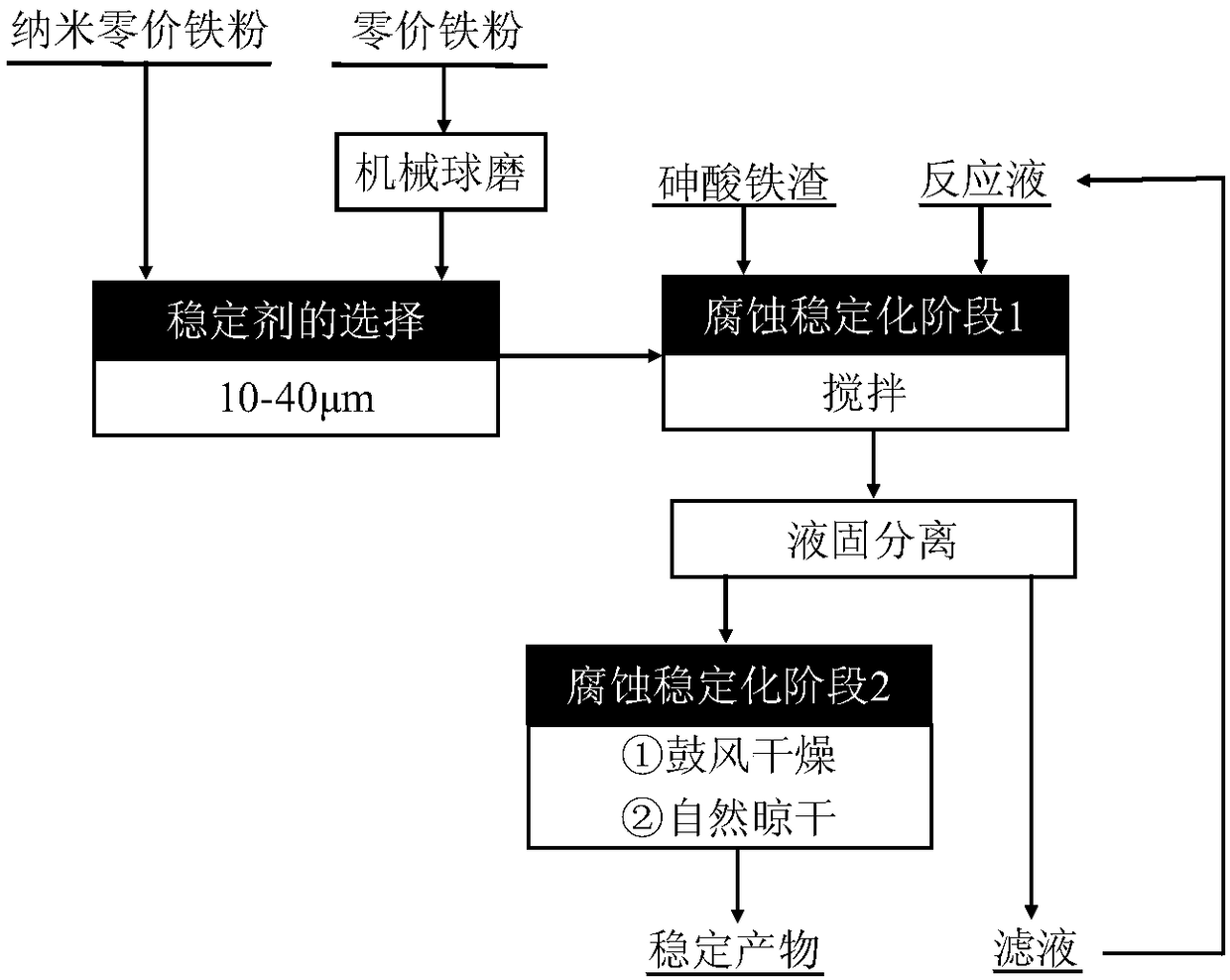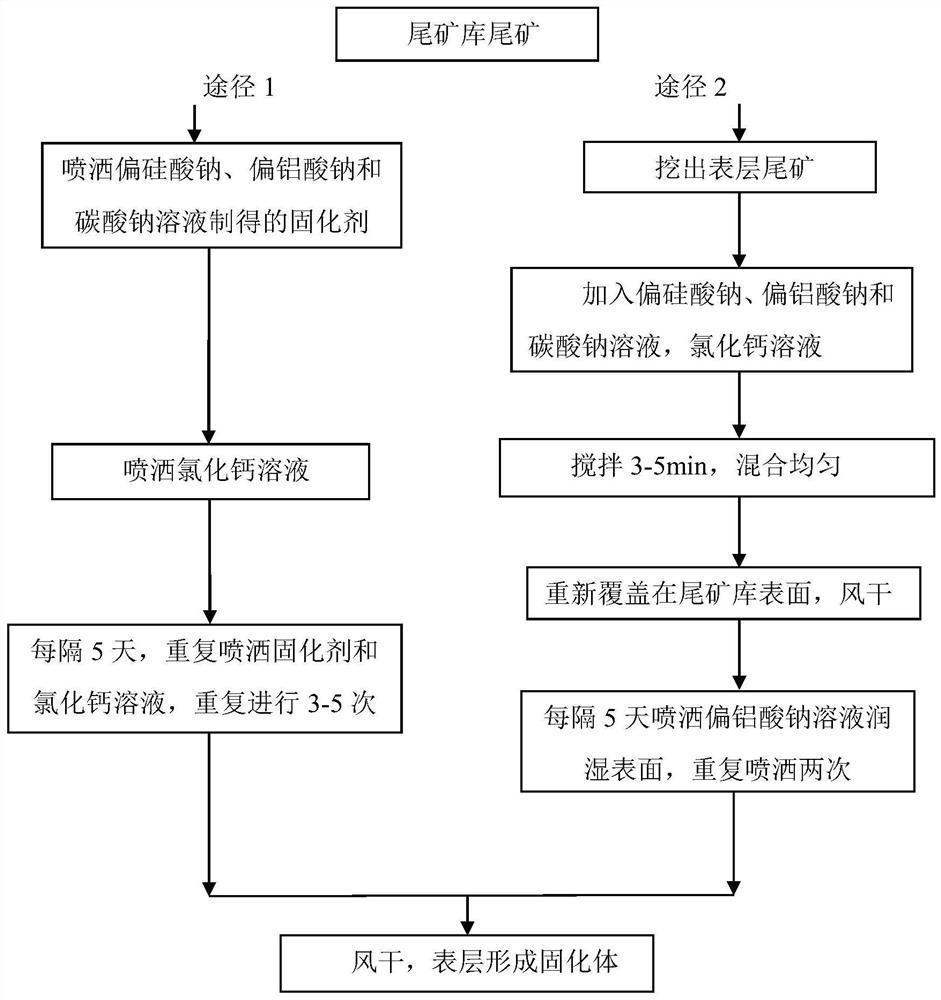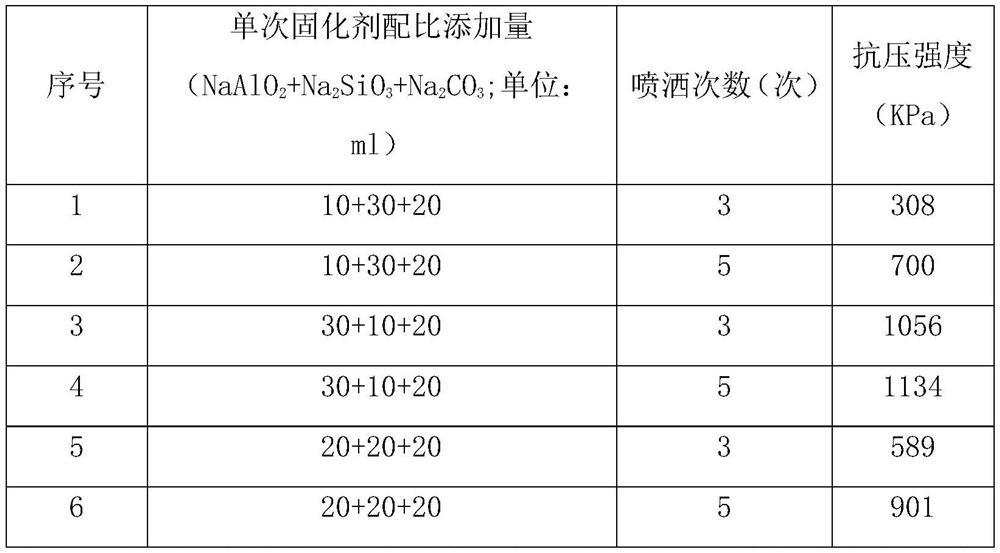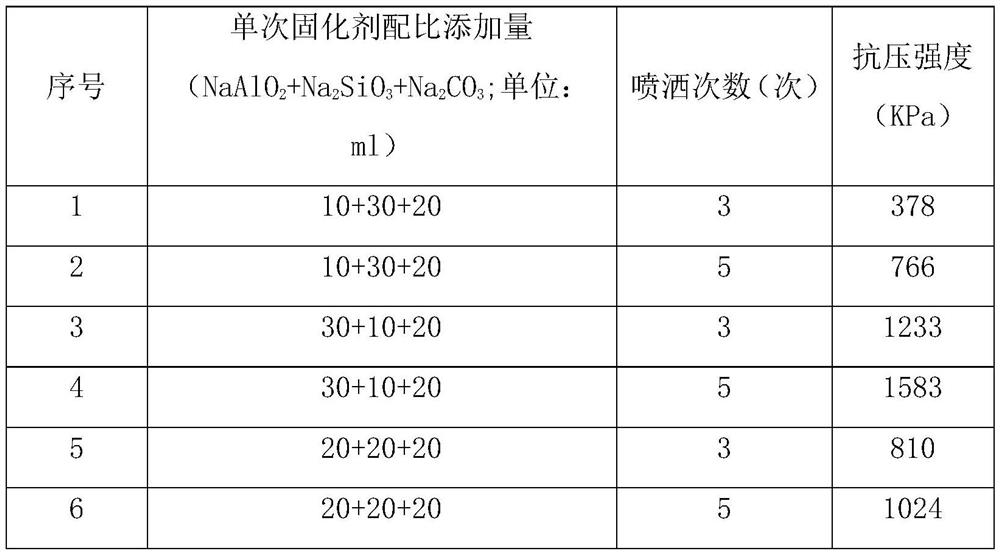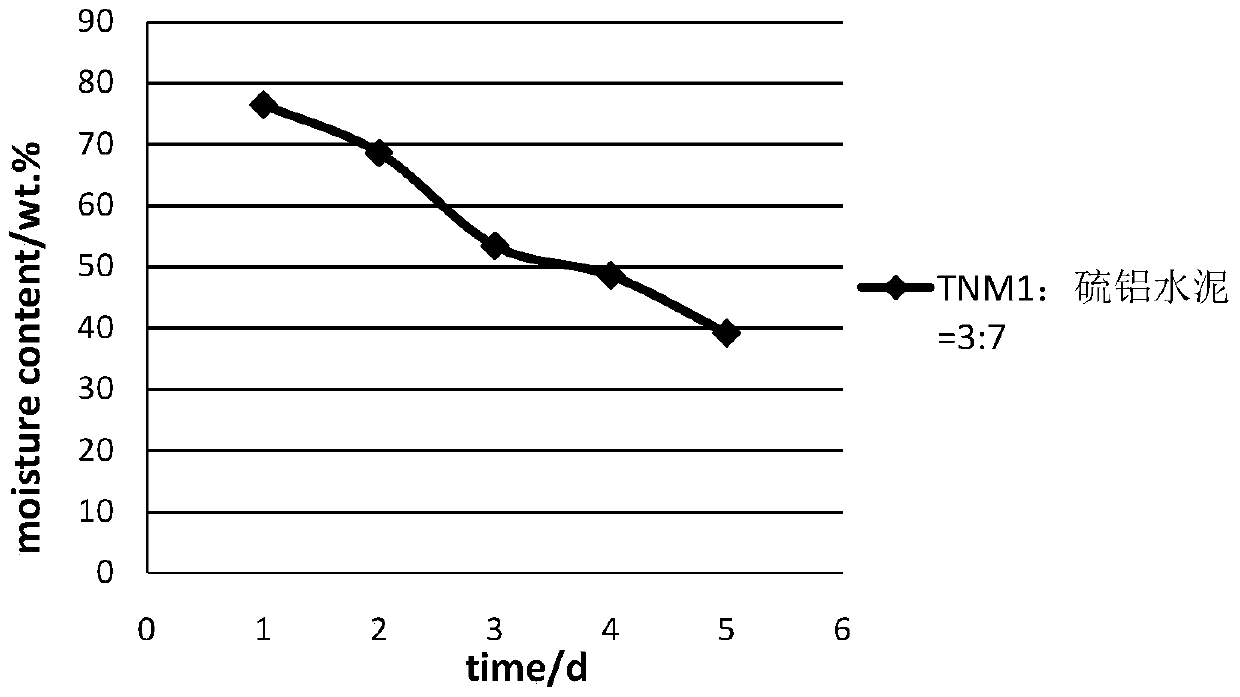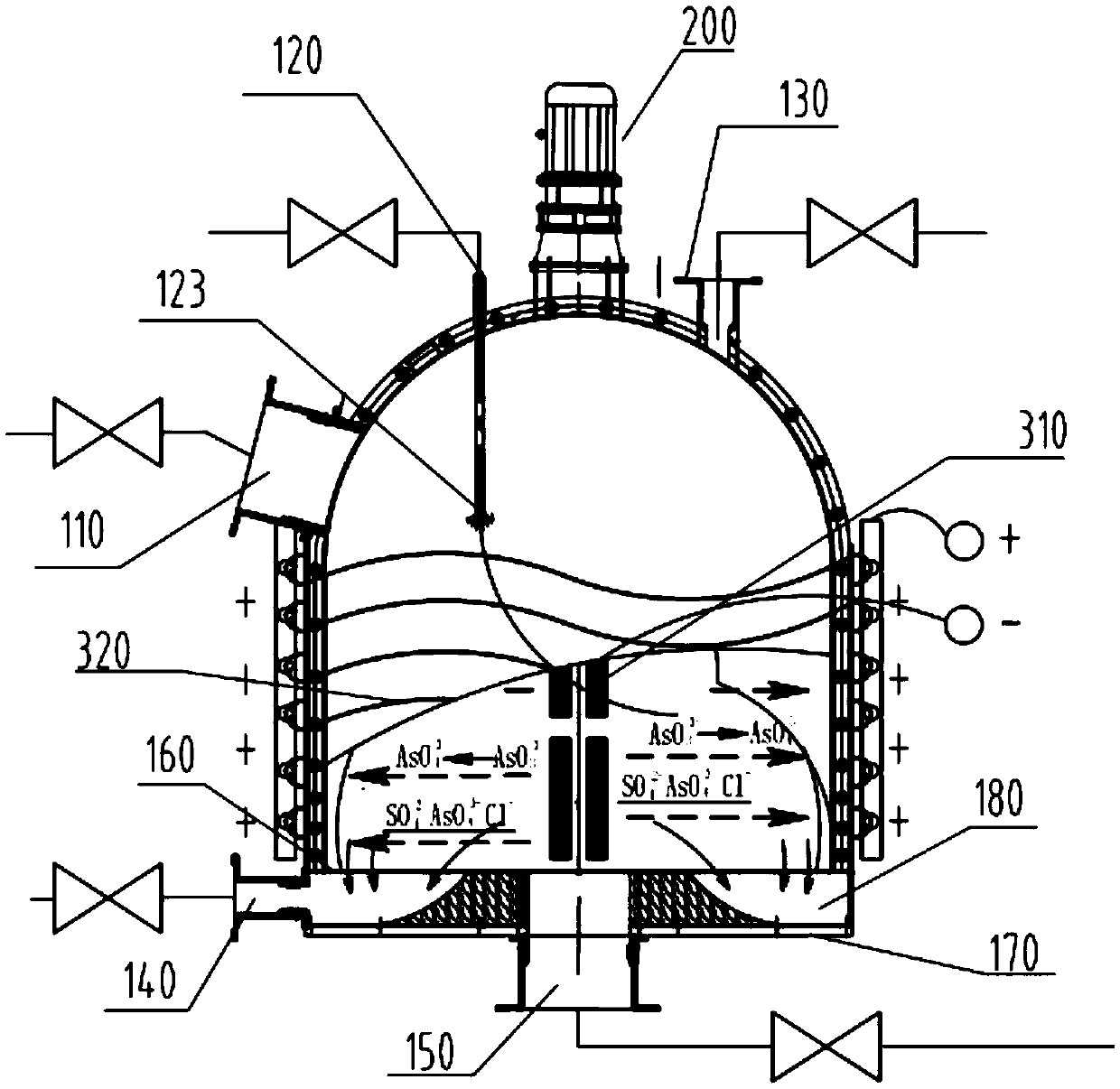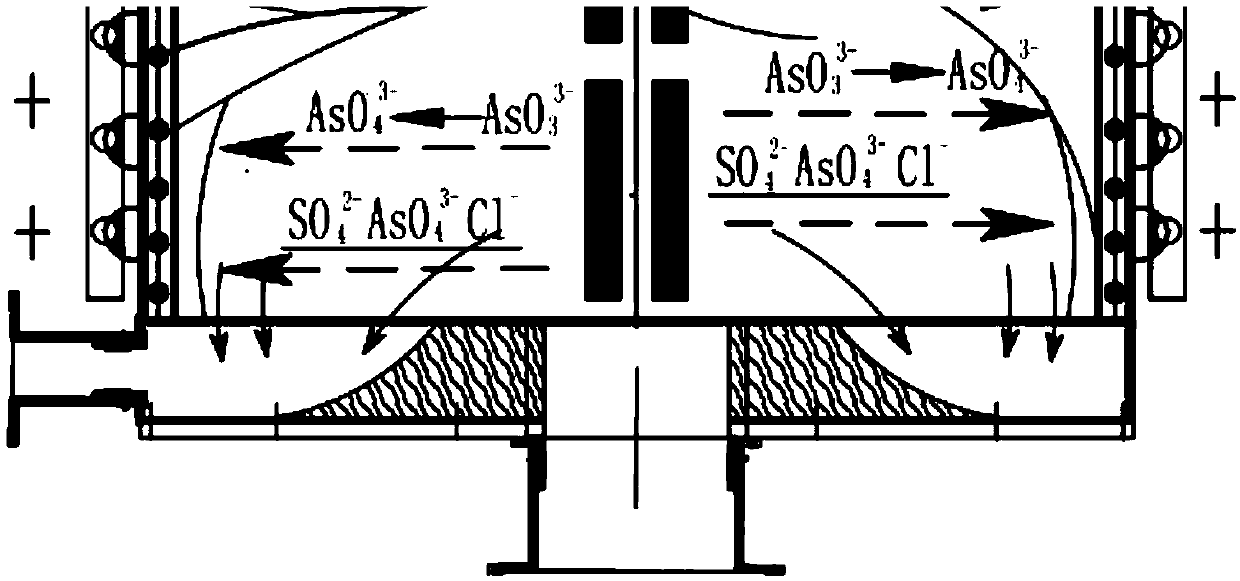Patents
Literature
Hiro is an intelligent assistant for R&D personnel, combined with Patent DNA, to facilitate innovative research.
53results about How to "Small increase ratio" patented technology
Efficacy Topic
Property
Owner
Technical Advancement
Application Domain
Technology Topic
Technology Field Word
Patent Country/Region
Patent Type
Patent Status
Application Year
Inventor
Stable curing agent for waste incineration fly ash and method for treating urban domestic waste incineration fly ash
The invention discloses a stable curing agent for waste incineration fly ash and a method for treating urban domestic waste incineration fly ash. The stable curing agent is prepared from a heavy metal stabilizing agent, water and cement. The raw materials in the stable curing agent are easy to obtain, medicament cost is low, the use amount of cement is small, a curing body is stable, and secondary pollution of the environment is not caused. The stable curing agent is used for treating the urban domestic waste incineration fly ash and has the dual effects of stabilizing and curing, an obtained cured block is stable in physical and chemical property, the use amount of the cement is reduced, the compatibilization ratio of the curing block is reduced, and harm of incineration fly ash to human bodies and the ecological environment is effectively eliminated.
Owner:HUNAN HENGKAI ENVIRONMENT TECH INVESTMENT CO LTD
Solidification treatment method for sludge of urban sewage plant
InactiveCN102424511AHigh strengthReduce voidsSludge treatment by de-watering/drying/thickeningAluminatePortland cement
The invention discloses a solidification treatment method for sludge of urban sewage plants. The method comprises the following steps of (1) adding curing agent consisting of lime, sulfate aluminum cement, portland cement and fly ash in dehydrated sludge based on the weight of the dehydrated sludge, wherein the weight percentage of lime, sulfate aluminum cement, portland cement and fly ash in the curing agent are as follows: 1.2-1.9% of lime, 3.0-6.1% of sulfate aluminum cement, 3.0-3.7% of portland cement and 4.7-6.0% of fly ash; and (2) mixing the sludge added with the curing agent to form precursors of solidified blocks, piling the precursors up according to a height of 7 cm, and covering with waterproof membrane, maintaining the precursors for three days with a dry maintaining method, and forming sludge solidified blocks. The method provided by the invention has the advantages of efficiency, low cost, simple operation and the like.
Owner:CHONGQING UNIV
Method for treating garbage burning flying ash
The invention discloses a method for treating refuse burning fly ash, which comprises steps as follows: (1) preparing a stabilizer solution from (by weight part) compounds containing pentahydroxy acetate 0.3-3, compounds containing dimethylamino sulfate 0.5-12 and water 20-50; (2) adding the stabilizer solution into 100 weight parts of refuse burning fly ash while stirring, and stirring to obtain a thick slurry; (3) adding 1-10 weight parts of compounds containing silicate into the thick slurry, and stirring to obtain a grout mixture; (4) feeding the grout mixture into an extruding machine, and extruding to obtain massive blanks; and (5) placing the blanks in a steam chamber, standing, curing, and conducting landfill disposal. The method has the advantages of low treatment cost, low volume-added ratio, and no secondary pollution; and can be widely used in treating refuse burning fly ash.
Owner:沈恩善
Steel slag-desulfurized gypsum based soil solidification agent applicable to arsenic contaminated soil
InactiveCN106467745AReduce the amount of blendingSmall increase ratioContaminated soil reclamationOrganic fertilisersSlagGypsum
The invention discloses a steel slag-desulfurized gypsum based soil solidification agent applicable to arsenic contaminated soil. The soil solidification agent contains the ingredients in percentage by weight: 40% to 45% of steel slag, 15% to 25% of desulfurized gypsum, 22% to 30% of slag, 7% to 10% of cement clinker and 3% of excitant. According to the soil solidification agent disclosed by the invention, arsenic is solidified and stabilized mainly by means of chemical wrapping and in-phase replaced solidifying, and the age of a solidifying reaction can be shortened and the mixed amount of the solidification agent and solidified volume increase ratio in engineering applications can be lowered while a solidifying effect is guaranteed, so that the solidifying efficiency is increased greatly.
Owner:WUHAN UNIV
Arsenious waste curing method as well as generated solid arsenic crystal product and application thereof
The invention provides an arsenious waste curing method. The arsenious waste curing method comprises the following steps of: (1) grinding arsenious waste into powder, adding into iron, boron and phosphorous basic glass ingredients and a stabilizer, and uniformly mixing raw materials and drying; and (2) placing the dried raw materials into a stainless steel mould, heating to 400-500 DEG C at a constant speed within 0.8-1.2 hours, and insulating for 1-2 hours, wherein intensity of pressure in the stainless steel mould is maintained to be 10-12Mpa all the time in the heating process; and founding, homogenizing, then carrying out natural cooling to room temperature, taking out the mould, and demoulding, thus the solid arsenic crystal product is obtained. The invention also provides a solid arsenic crystal product generated by the arsenious waste curing method. Arsenic curing rate of the arsenious waste curing method is high, and the produced cured product can be used for making a building or decorative material.
Owner:CENT SOUTH UNIV
Solidification and stabilization method for mercury in mercury contaminants
InactiveCN106391694AReduce dosageReduce the risk of double releaseContaminated soil reclamationUltimate tensile strengthStabilization methods
The invention provides a solidification and stabilization method for mercury in mercury contaminants. The method includes the following steps that (1) mercury contaminant particles with the grain diameter not larger than 5 mm are mixed with soluble sulfide and water, and a first mixture is obtained; (2) the first mixture, cement and water are stirred and mixed, the stirring speed ranges from 20 r / min to 40 r / min, and a second mixture is obtained; and (3), after the second mixture is placed, the treated mercury contaminants are obtained. According to the method, the solidification effect of mercury in the contaminants is enhanced, the cement use amount is reduced on a large scale, the solidification capacity-increase ratio is small, and ready-made construction is rapid; and the leaching concentration of mercury after solidified bodies are stabilized for a long time is low, the mechanical strength of the solidified bodies can meet the requirements of ordinary road paving, and the solidification and stabilization method is suitable for mercury contamination repair projects with the large area, the tight schedule, the simple construction conditions and the low one-time invested cost requirement.
Owner:北京南科大蓝色科技有限公司 +1
Method for solidifying-stabilizing bottom mud polluted by heavy metals by using cement and organic sulfides and application of obtained solidified body
ActiveCN102936116AReduce usageHigh compressive strengthSludge treatmentWater contaminantsOrganic sulfide compoundMaterials science
The invention relates to a method for solidifying-stabilizing bottom mud polluted by heavy metals by using cement and organic sulfides and application of an obtained solidified body. The method comprises the steps of adding aminodithioformic acid into the bottom mud polluted by heavy metals, stirring fully, adding cement, stirring the obtained mixture uniformly, and curing for 3d-14d to obtain the solidified body, so that a solidifying-stabilizing process is completed. The method has the advantages that the usage amount of the cement can be reduced, the cost is reduced, the capacity increasing rate of the solidified body is reduced, secondary pollution is avoided, the solidifying-stabilizing effect of the bottom mud polluted by heavy metals is improved, the cured solidified body can be used for landfill disposal or can serve as a building material.
Owner:HUNAN UNIV
Aluminium-based gelling curing agent for curing dehydrated sludge and application thereof
InactiveCN102225858AIdeal curing/stabilizing effectWith quick settingSludge treatment by de-watering/drying/thickeningPortland cementSludge
The invention relates to an aluminium-based gelling curing agent for curing dehydrated sludge and an application thereof. The invention is characterized in that the aluminium-based gelling curing agent comprises the following components: 50%-85% of ordinary portland cement, 10%-40% of synthetic calcium aluminate, 2.5%-5% of curing promoting-early strength agent anhydrous CaSO4, 0.5%-1% of triethanolamine, and 2%-4% of NaAlO2. The aluminium-based gelling curing agent is mixed with dehydrated sludge with a mass ratio of 5-30:100; the mixture is stirred uniformly in a stirrer, and is allowed to stand for curing at room temperature; the obtained curing product can be landfilled directly, or be used as cover soil in a landfill, or be produced into building materials with low strength by compacting molding. The material for preparing the aluminium-based gelling curing agent in the invention has extensive sources and low price; the curing treatment of dehydrated sludge by the aluminium-based gelling curing agent does not cause secondary pollution, can inhibit the generation of malodorous gas with high efficiency, and has higher environmental and economic benefit.
Owner:TONGJI UNIV
Waste incineration fly ash heavy metal inorganic composite stabilizing agent and stabilizing and curing method thereof
InactiveCN112169246ARaw materials are easy to obtainLow costChemical protectionKaolin clayRaw material
The invention discloses a waste incineration fly ash heavy metal inorganic composite stabilizing agent which can reduce the treatment cost and is environmentally friendly and a stabilizing and curingmethod thereof. The waste incineration fly ash heavy metal inorganic composite stabilizing agent is prepared from ferrous sulfate, sodium dihydrogen phosphate, disodium hydrogen phosphate, potassium pyrophosphate, bentonite, kaolin, calcium oxide and calcium hydroxide, wherein the mass ratio of any two components is 1-5: 1. The stabilizing and curing method of the waste incineration fly ash heavymetal inorganic composite stabilizing agent comprises the following steps: S1, selecting components of the heavy metal inorganic composite stabilizing agent, and S2, stabilizing heavy metals in the waste incineration fly ash. The waste incineration fly ash heavy metal inorganic composite stabilizing agent and the stabilizing and curing method thereof are adopted, raw materials are easy to obtain,the dosage is small, the agent cost is low, the stabilizing / curing process is simple, a cured body is stable, good acid and alkali resistance is achieved, and secondary pollution to the environment isavoided. The stabilizing agent has a good curing effect on heavy metals in the household garbage incineration fly ash.
Owner:NEIJIANG NORMAL UNIV
Aluminum base gelling and curing agent, preparation method and application thereof
The invention discloses an aluminum base gelling and curing agent, which comprises calcium aluminate, sulfur aluminum cement and an early-strengthening coagulant aid, wherein the mass ratio of the above three parts is : (1-3) : (6.5-8.5) : 0.5. The invention also discloses a preparation method of the above aluminum base gelling and curing agent. According to the method, the calcium aluminate, the sulfur aluminum cement and the early-strengthening coagulant aid, in the mass ratio of the above three parts is : (1-3) : (6.5-8.5) : 0.5, are ground, sieved, mixed and stacked up in a cone shape. After that, samples are pressed flat, and peripheral samples are stacked up centrad again in a cone shape and then pressed flat. So repeatedly for several times, and then the aluminum base gelling and curing agent can be obtained. The invention also discloses a method for treating the dredged sediment by means of the above aluminum base gelling and curing agent. Waste and gravels in the mud of the dredged sediment are separated, and then the cationic-type polyacrylamide is added to thicken and dehydrate the dredged sewage. After that, the aluminum base gelling and curing agent is added and mixed with the dredged sewage, and the mixture is stirred. Meanwhile, a water reducer is added and mixed uniformly with the above mixture. After the dehydration and solidification process, the obtained product is subjected to stabilization maintenance. The aluminum base gelling and curing agent is higher in economic, social and environmental benefits.
Owner:TONGJI UNIV
Method for preparing chromium curing/stabilizing material, chromium curing/stabilizing material prepared thereby and application thereof
ActiveCN109517598ARealize the packageIncrease the areaOrganic fertilisersSoil conditioning compositionsChromium contaminationPhysical chemistry
The invention relates to a method for preparing a chromium curing / stabilizing material, the chromium curing / stabilizing material prepared thereby and an application thereof. The method comprises the following steps of: uniformly mixing a silicon-aluminium mineral, calcium-magnesium mineral and an additive, and after high-temperature calcination at the temperature of 800-1600 DEG C, obtaining a calcinated material; then uniformly mixing the calcinated material, a stabilizer, a chromium precipitating agent and a viscosifier to obtain the chromium curing / stabilizing material. The chromium curing / stabilizing material can be used for curing / stabilizing chromium and controlling chromium pollution, and is especially used for remediation of soil polluted by the chromium.
Owner:HUNAN LONGE GALLOP TECH CO LTD +1
Stabilizing treatment method for beryllium-containing waste residues
ActiveCN112456957AAchieve stabilizationAchieve safe disposalSolid waste managementHazardous substanceEnvironmental engineering
The invention provides a stabilizing treatment method for beryllium-containing waste residues and belongs to the technical field of environment-friendly treatment of harmful substances. The method comprises the steps of wet grinding, diversified synthetic reaction, curing molding and the like. The leaching concentration of beryllium in the treated cured material is less than 0.2 mg / L and is lowerthan the control limit value of "Hazardous Waste Pollution Landfill Control Standard-GB18598-2019", and the cured material can be directly put in storage for safe landfilling. According to the method,the beryllium-containing waste residues are safely disposed, and the method has positive significance in ecological environment protection.
Owner:扬州杰嘉工业固废处置有限公司
Curing agent for waste incineration fly ash
InactiveCN110279975AImprove curing effectImprove stabilityChemical protectionHigh concentrationPyrite
The invention relates to a curing agent for waste incineration fly ash. Every 100 parts of the curing agent is prepared by mixing 80-95 parts of pyrite and 5-20 parts of calcium carbonate powder. The curing agent for the waste incineration fly ash involved in the invention is prepared by compounding the pyrite and the calcium carbonate powder, and the curing agent prepared according to the proportion has good curing effects ; by using the curing agent for treating the waste incineration fly ash, hazardous substances (including heavy metal, arsenic, fluorine and the like) in the waste fly ash can be effectively cured, the curing age is short, the curing cost is largely reduced, the curing agent has good stability, the problem of leaching of the hazardous substances after curing does not exist, and other high-concentration wastes are not produced either.
Owner:哈德逊(苏州)水技术有限公司
Method for treating arsenic sulfide residue
ActiveCN102151690BReduce leaching toxicityHarm reductionSolid waste disposalChemical reactionOperability
Owner:中节能大地(杭州)环境修复有限公司
Wet detoxification and bioremediation combined method for chromium slag and chromium-contaminated soil
InactiveCN113751488AReduce generationPromote dissolutionContaminated soil reclamationOrganic fertilisersCarboxylic acidSlurry
The invention discloses a wet detoxification and bioremediation combined method for chromium slag and chromium-contaminated soil, wherein the method comprises the steps: pretreating waste slag containing hexavalent chromium or chromium-contaminated soil, removing large-particle materials, and conveying to a slurry stirring tank to obtain chromium-containing slurry; conveying the slurry to a wet detoxification acidification reduction tank, adding concentrated sulfuric acid, organic acid, hydroxy carboxylate and ferrous sulfate, carrying out acidification reduction reaction, dissolving out hexavalent chromium, and reducing hexavalent chromium into trivalent chromium; and then enabling the slurry to enter a reduction and stabilization tank, adding a reduction and stabilization agent for further reduction and stabilization reaction, and fully reacting hexavalent chromium to generate a stable trivalent chromium complex; then carrying out solid-liquid separation on the slurry, wherein filtrate flows into a wet detoxification reaction tank for recycling; and further carrying out biological reduction stabilizing treatment on dewatered cement cake, so as to ensure the long-term stability of the treated material.
Owner:湖南新九方科技有限公司
Passivant for treating high-arsenic waste residues and preparing and using methods of passivant
InactiveCN109943340AAchieve stabilizationLow costContaminated soil reclamationOrganic fertilisersArsenic pollutionSulfate
The invention discloses a passivant for treating high-arsenic waste residues and preparing and using methods of the passivant. The passivant is prepared from, by weight, 5-20% of ferric sulfate or ferrous sulfate, 10-30% of pulverized fuel ash, 5-10% of sodium silicate and the balance filler. According to the passivant for treating the high-arsenic waste residues, the high-molecular polymer is prepared according to a matching ratio and added into the high-arsenic waste residues, arsenic in the waste residues is induced, adsorbed and agglomerated, finally, a monotonous and stable arsenic compound is formed, and migration of the arsenic in the waste residues is controlled. Through the triple effect, stabilization of the arsenic residues is achieved, the standard for the arsenic residues to enter a landfill is met, the technical effect is better than that of traditional technologies, the cost can be reduced, and the capacity enlargement ratio is reduced. The passivant can be effective fora long time, and the rebounding phenomena of arsenic pollution cannot occur. When the passivant is in use, the chemical addition amount only needs to account for 3-10% of the weight of the high-arsenic waste residues to be treated. The construction technology is simple, only blending and hydration treatment is needed at a construction site, and the passivant is simple and environmentally friendly.
Owner:河南川萍环保科技有限公司
Method for stabilized solidification of mercury-containing waste salt slag by using petrochemical waste alkali slag
The invention relates to the technical field of hazardous waste disposal, and particularly relates to a method for stabilized solidification of mercury-containing waste salt slag by using petrochemical waste alkali slag. The method comprises the following steps that the mercury-containing waste salt slag and the petrochemical waste alkali slag are subjected to first-stage mixing and ball milling,and then an auxiliary stabilizer is added into a material obtained after first-stage mixing and ball milling, the mixture is subjected to second-stage mixing and ball milling; and 2) the material obtained in the step 1) is mixed with a solidifying material, and stirred to obtain a uniform bulk granular solidified material. By the adoption of the method, waste can be treated with waste, important economic, social and environmental benefits are achieved, and a novel method is provided for terminal harmless treatment of mercury-containing waste salt.
Owner:扬州杰嘉工业固废处置有限公司
A method for treating multi-valence arsenic-containing sludge
InactiveCN107285581ALow toxicityIncrease inertiaSludge treatment by oxidationFixation/solidifcation sludge treatmentAlkalinitySludge
A method for treating multi-valence arsenic-containing sludge is disclosed. The method includes steps of adding the arsenic-containing sludge into a proper amount of water at room temperature, stirring the mixture, adjusting the pH value of the arsenic-containing sludge to obtain a mixture I, adding a certain amount of an oxidant into the arsenic-containing sludge to obtain a mixture II, then adding a stabilizer into the mixture to obtain a mixture III, stirring the mixture for a certain time period, then adjusting the pH of a solidified body to alkalinity to obtain a mixture IV, and finally adding a curing agent. The method has advantages of capability of oxidizing low-valence arsenic into stable low-toxicity arsenic, the stable and high-strength solidified body, a simple process, and high operationality.
Owner:云南大地绿坤环保科技有限公司
Disposal method for thallium-containing solid waste
ActiveCN107486464AImprove safe disposal efficiencyImproving the effect of stabilization treatmentSolid waste disposalTransportation and packagingEmulsionIndustrial effluent
The invention discloses a disposal method for thallium-containing solid waste. The disposal method comprises the following steps that by mass, 0.3-0.5 part of polyacrylate emulsion, 0.3-0.5 part of ethylene-vinylacetate copolymerized emulsion and 1-2 parts of cement are mixed together, and accordingly a thermoset encapsulating material is prepared; and the thermoset encapsulating material is added into the thallium-containing solid waste, mixing and stirring are conducted, then curing is conducted, and accordingly disposal of the thallium-containing solid waste is completed. The reactant consumption amount is reduced, and the enlargement ratio is decreased; and in addition, the good disposal effect is achieved, the leaching concentration of thallium contaminants in waste residues after disposal is lower than the industrial wastewater thallium pollutant discharge standard (DB44 / 1989-2017), and thus the disposal method can be applied and popularized on a large scale in the field of treatment of the thallium-containing waste.
Owner:BEIJING GENERAL RES INST OF MINING & METALLURGY
Arsenic sulfide slag wet mineralization detoxification treatment method
ActiveCN114160555AFully exert the oxidation effectImprove oxidation efficiencySolid waste managementTransportation and packagingSlagSulfidation
The invention discloses an arsenic sulfide slag wet mineralization detoxification treatment method which comprises the following steps: adding arsenic sulfide slag into water to obtain an arsenic-containing slurry, adding a composite oxidant under stirring, carrying out a first reaction, adding a mineralizer under stirring, carrying out a second reaction, and maintaining the detoxified slag obtained after the reaction to obtain mineralized slag. According to the method, the arsenic in the arsenic sulfide slag is subjected to effective high-valence conversion through the composite oxidizing agent and then reacts with the mineralizing agent to generate the arsenic-containing mineral with the low solubility product, and the free and non-obligate adsorption form arsenic in the arsenic sulfide slag is converted into a composite mineral form capable of stably existing for a long time through the strong coordination adsorption effect; therefore, efficient detoxification of the arsenic sulfide slag is realized. The method is simple in process, short in period, stable in effect, small in capacity increasing ratio and low in treatment cost, after the arsenic sulfide slag is subjected to mineralization detoxification treatment, all indexes can reach the middle limit value of the hazardous waste landfill pollution control standard, and safe landfill treatment can be carried out.
Owner:CHANGSHA SCI ENVIRONMENTAL TECH
Long-term stable curing method for thermal copolymerization of arsenic sulfide slag
ActiveCN111569350ASolve the defect of poor anti-aging performanceEfficient curing/stabilizationChemical protectionSlagPhysical chemistry
The invention relates to a long-term stable solidification method for thermal copolymerization of arsenic sulfide slag, belonging to the technical field of solid waste solidification / stabilization treatment. The method comprises the following steps: weighing arsenic sulfide slag, sulfur and an anti-aging agent according to a mass ratio of 1: (0.1-5): (0.05-0.5), and carrying out heating and stirring to form a melt; and cooling the obtained melt to form a cured body. According to the method, a thermal copolymerization reaction between the arsenic sulfide slag and the sulfur and the anti-aging treatment of a copolymer are utilized, so the efficient and stable solidification of the arsenic sulfide slag is realized; the leaching concentration of arsenic in the obtained solidified body is lowerthan 1.0 mg / L, long-term stability is high, a compatibilization ratio is lower than 1, compressive strength can reach 10 MPa or above, and the allowable landfill control limit requirement of an arsenic leaching concentration of lower than 1.2 mg / L specified in hazardous waste landfill pollution control standards is met.
Owner:RES CENT FOR ECO ENVIRONMENTAL SCI THE CHINESE ACAD OF SCI
Alkali activated solidification and stabilization treatment method of refuse incineration fly ash
ActiveCN102303036BSimple and fast operationSimple processSolid waste disposalPhysical chemistryAlkali activated
The invention relates to an alkali activated solidification and stabilization treatment method of refuse incineration fly ash. The method comprises the following steps of: A: carrying out a pretreatment on the refuse incineration fly ash; B, then adding water and heavy metal stabilizing agents and fully stirring so as to fully integrate soluble heavy metals in the fly ash with the heavy metal stabilizing agents and then realizing a mineralization stability; C, adding alkali activating agents into fly ash slurry after finishing the B step and fully stirring; D, carrying out a heating treatment on a water bath after finishing the C sep, controlling a heating temperature and a heating time, and aperiodically stirring so as to uniformly heat the fly ash slurry materials; and E, finally shaping and maintaining the mixed materials so as to further blockade mineralized heavy metals in the fly ash and simultaneously solidify dioxin in the fly ash, and finally realizing the harmless solidification and stabilization of the fly ash. According to the method provided by the invention, the gelling reaction of the fly ash is generated by using the alkali activating agents to activate the fly ash activity only on a base of regulating the fly ash activity, and the double-effect stabilization of the fly ash is obtained by simultaneously supplementing the heavy metal stabilizing agents; moreover, the method has the advantages of low cost, good effect, low increase-volume rate and no secondary pollution.
Owner:深圳市龙岗区东江工业废物处置有限公司
Method for solidifying-stabilizing bottom mud polluted by heavy metals by using cement and organic sulfides and application of obtained solidified body
ActiveCN102936116BReduce usageHigh compressive strengthSludge treatmentWater contaminantsOrganic sulfide compoundMaterials science
The invention relates to a method for solidifying-stabilizing bottom mud polluted by heavy metals by using cement and organic sulfides and application of an obtained solidified body. The method comprises the steps of adding aminodithioformic acid into the bottom mud polluted by heavy metals, stirring fully, adding cement, stirring the obtained mixture uniformly, and curing for 3d-14d to obtain the solidified body, so that a solidifying-stabilizing process is completed. The method has the advantages that the usage amount of the cement can be reduced, the cost is reduced, the capacity increasing rate of the solidified body is reduced, secondary pollution is avoided, the solidifying-stabilizing effect of the bottom mud polluted by heavy metals is improved, the cured solidified body can be used for landfill disposal or can serve as a building material.
Owner:HUNAN UNIV
Method for stabilizing iron arsenate slag
The invention discloses a method for stabilizing iron arsenate slag. The method comprises the following steps that (1), an iron-based stabilizer is added into the arsenic-containing waste residue, andmixing is carried out; (2), a reaction solution is added into the mixture, and stirring is carried out to prepare slurry; and (3), after the slurry is stirred under a certain condition, liquid-solidseparation is carried out, and the filtered product undergoes standing, air drying or drying dewatering, so that a stable product of the iron arsenate slag is obtained, and the filtrate is returned tothe reaction solution to be reused. The method has the advantages of being simple in process, easy to operate, low in auxiliary material cost, free of secondary pollution, small in capacity increasing ratio and the like; and the method can be directly applied to the final treatment and disposal of the iron arsenate slag.
Owner:CENT SOUTH UNIV
A kind of disposal method of solid waste containing thallium
ActiveCN107486464BImprove safe disposal efficiencyImproving the effect of stabilization treatmentSolid waste disposalTransportation and packagingIndustrial effluentEmulsion
The invention discloses a method for disposing of thallium-containing solid waste, comprising the following steps: in parts by mass, 0.3-0.5 parts of polyacrylate emulsion, 0.3-0.5 parts of ethylene-vinyl acetate copolymer emulsion, 1-2 parts of cement Mixing together to obtain a thermosetting encapsulating material; adding the thermosetting encapsulating material to the thallium-containing solid waste, mixing and stirring, and then curing, thereby completing the disposal of the thallium-containing solid waste. The invention not only reduces the consumption of chemicals, but also reduces the capacity-enhancing ratio, and has good disposal effect, and the leaching concentration of thallium pollutants in the waste residue after disposal is lower than the "Discharge Standard of Thallium Pollutants in Industrial Wastewater" (DB44 / 1989-2017) , which can be widely applied in the field of thallium-containing solid waste treatment.
Owner:BEIJING GENERAL RES INST OF MINING & METALLURGY
A kind of fine-grain tailings surface curing agent and its application method
ActiveCN111039584BReduced mobilityAchieving cemented fixationSolid waste managementCement productionSodium metasilicateSodium aluminate
The invention discloses a surface curing agent for fine-grain tailings and an application method thereof. The curing agent is composed of four components: sodium metasilicate solution, sodium metaaluminate solution, sodium carbonate solution and calcium chloride solution; The amount of sodium aluminate solution and sodium metaaluminate solution is determined according to the Si / Al molar ratio of the fine-grained tailings itself, and the CO in the curing agent 3 2‑ and Ca 2+ Concentrations are determined according to how the curing agent is used, and two methods of application of the curing agent are proposed. Under the calcification and hydration induced by metasilicate, metaaluminate and carbonate functional groups, tailings particles will generate geopolymer and calcium carbonate precipitation, and the compressive strength of the solidified body can reach about 1000-3500Kpa. The classification can reach the level of "strongly cemented soil or soft rock" to realize the cementation and fixation of tailings particles, so that the surface particles will not migrate with wind or rainwater runoff, and the leaching of heavy metals can be inhibited.
Owner:ZHEJIANG UNIV OF TECH
A kind of treatment method for dilution, conditioning and solidification of non-standard disposal sludge
InactiveCN105776785BLow viscosityShorten curing and drying timeSludge treatment by oxidationFixation/solidifcation sludge treatmentBound waterSludge
The invention discloses a diluting and conditioning method for sludge. According to the method, sludge floc structures are damaged through oxidation; hydrophilic organic groups are damaged and transformed into free components; meanwhile the molecular weight of organic macromolecular substance in sludge can be further reduced through the oxidation of hydrogen peroxide, breakage of binding bonds among high polymer skeletons is promoted, further bound water, capillary water and cell bound water in sludge floc colloid structures are released, and sludge viscidity is effectively reduced. The method for treating sludge subjected to non-standardized treatment lies in that sludge is subjected to diluting and conditioning treatment through the method; a cement-based mixing dehydration curing agent is added for sufficient stirring; the sludge is subjected to stabilized curing after dehydration curing, thereby meeting the requirement of sanitary landfill. The invention further discloses a laboratory and an industrial preparation method of the cement-based mixing dehydration curing agent. The method is simple in technology and low in cost, expands environment restoration technological approaches of sludge open storage grounds, and has high economic, social and environment benefits.
Owner:TONGJI UNIV
A process and system for electric field synergistic stabilization treatment of multivalent arsenic-containing waste residue
The invention provides a process and system for electric-field synergy stabilizing treatment of multivalence arsenic-containing waste residue. The method comprises the following steps: step 1: adding an oxidizing agent into the arsenic-containing waste residue with a water content being 50-70% and stirring to enable arsenic to be subjected to oxidizing reaction; applying an electric field to the arsenic-containing waste residue while adding the oxidizing agent, wherein a cathode of the electric field is positioned in the middle of the arsenic-containing waste residue, and an anode is positioned around the arsenic-containing waste residue, such that anions in the anion are migrated and aggregated to the anode; step 2: removing the electric field after the oxidizing reaction of the arsenic in the arsenic-containing waste residue is finished, then adding a stabilizing agent into the arsenic-containing waste residue and stirring, such that the arsenic in the arsenic-containing waste residue is reacted to be stabilized, and therefore, an arsenic compound that exists stably is obtained, wherein in the steps 1 and 2, percolate of the arsenic-containing waste residue is always filtered and collected. The process for the electric-field synergy stabilizing treatment of multivalence arsenic-containing waste residue is low in cost and wide in processing range, and the processed arsenic-containing waste residue is small in capacity-increase ratio and has no secondary pollution.
Owner:CENTRAL SOUTH UNIVERSITY OF FORESTRY AND TECHNOLOGY +1
A kind of preparation method of SIC-based composite phase ceramic solidified body
ActiveCN110423120BGood chemical stabilityImprove thermal conductivityRadioactive decontaminationPolyvinyl alcoholHeat stability
The invention discloses a method for preparing a SiC-based multiphase ceramic solidified body, which is characterized in that the steps are: using ZnO, CaO, Al 2 o 3 , SiO 2 As a raw material, ZCAS glass is obtained by ball milling, drying, calcining, ball milling, and drying; SiC-ZCAS composite powder is obtained by ball milling, drying, and calcining using silicon powder, graphite, and ZCAS glass as raw materials; Adding polyvinyl alcohol sol, mixing, granulating, and pressing to shape; heat-treating the shaped green body and sintering it in a vacuum hot-pressing sintering furnace to obtain a SiC-based multiphase ceramic solidified body. The invention adopts safe and cheap raw materials, simple and practical vacuum hot pressing sintering technology, and prepares a SiC-based multiphase ceramic solidified body with excellent radiation resistance stability, chemical stability, mechanical stability and thermal stability at a relatively low temperature. The SiC-based multiphase ceramic solidified body prepared by the invention is suitable for safe treatment of high-radioactive graphite waste produced by decommissioning of nuclear reactors.
Owner:SOUTHWEAT UNIV OF SCI & TECH
Method for treating garbage burning flying ash
The invention discloses a method for treating refuse burning fly ash, which comprises steps as follows: (1) preparing a stabilizer solution from (by weight part) compounds containing pentahydroxy acetate 0.3-3, compounds containing dimethylamino sulfate 0.5-12 and water 20-50; (2) adding the stabilizer solution into 100 weight parts of refuse burning fly ash while stirring, and stirring to obtaina thick slurry; (3) adding 1-10 weight parts of compounds containing silicate into the thick slurry, and stirring to obtain a grout mixture; (4) feeding the grout mixture into an extruding machine, and extruding to obtain massive blanks; and (5) placing the blanks in a steam chamber, standing, curing, and conducting landfill disposal. The method has the advantages of low treatment cost, low volume-added ratio, and no secondary pollution; and can be widely used in treating refuse burning fly ash.
Owner:沈恩善
Features
- R&D
- Intellectual Property
- Life Sciences
- Materials
- Tech Scout
Why Patsnap Eureka
- Unparalleled Data Quality
- Higher Quality Content
- 60% Fewer Hallucinations
Social media
Patsnap Eureka Blog
Learn More Browse by: Latest US Patents, China's latest patents, Technical Efficacy Thesaurus, Application Domain, Technology Topic, Popular Technical Reports.
© 2025 PatSnap. All rights reserved.Legal|Privacy policy|Modern Slavery Act Transparency Statement|Sitemap|About US| Contact US: help@patsnap.com

